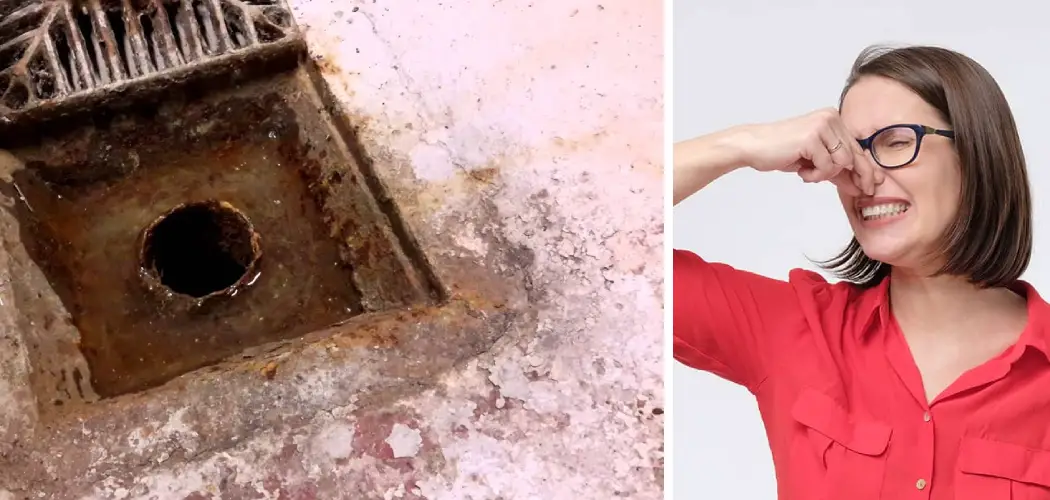Experiencing a sewer gas smell in your basement can be both unpleasant and concerning. The pungent odor is not only bothersome but can also indicate potential plumbing or drainage issues that need to be addressed. Sewer gas smells are typically caused by the presence of hydrogen sulfide, a byproduct of decaying organic matter.
If left untreated, these odors can permeate your living space and pose health risks. Fortunately, there are effective methods to eliminate the sewer gas smell in your basement. In this article, we will explore how to get rid of sewer gas smell in basement, address underlying issues, and implement preventive measures.
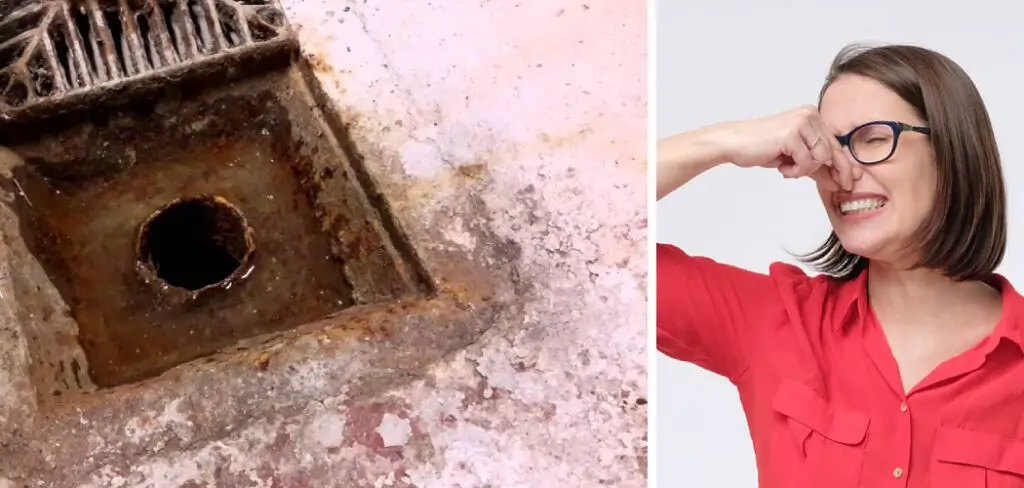
By following these guidelines, you can successfully eliminate the sewer gas smell, restore a fresh and healthy environment, and ensure the well-being of your home and its occupants.
Understanding the Potential Health Risks of Sewer Gas Smell in the Basement
When sewer gas odors permeate your basement, it’s important to not only remove the smell as soon as possible but also to understand any potential health risks associated with the problem. Sewer gas smell is caused by a combination of hydrogen sulfide and ammonia gases, which can accumulate in enclosed spaces such as basements if ventilation isn’t adequate.
If inhaled over long periods of time, these noxious gases can cause eye and throat irritation, dizziness, headaches, nausea and fatigue. Prolonged exposure may even lead to more serious health problems such as respiratory illnesses and organ damage.
Because of this, it’s important that you address the issue of sewage odor in your basement right away and take steps to ensure proper ventilation in order to prevent any health risks. Additionally, it’s important to take notice of any other signs or odors that may indicate a problem with the drainage system. If you’re still concerned about potential health risks associated with sewer gas smell in your basement, be sure to contact a licensed plumber for professional advice and assistance. With proper diagnosis and treatment, you can eliminate the odors and ensure a safe environment for yourself and your family.
For more detailed information on understanding the potential health risks of sewer gas smell in basements, consult professionals such as your local health department or an experienced plumber. Taking proactive steps now will help you protect your home’s air quality while eliminating unpleasant odors at the same time.
Importance of Addressing the Issue Promptly
It is important to address the issue of sewer gas smells in your basement promptly and take preventative action whenever possible. Not only will this help keep your home smelling fresh, but it can also prevent health risks associated with inhaling sewer gas fumes. Sewer gases contain bacteria and other harmful contaminants that may lead to respiratory issues if not dealt with immediately.
Additionally, prolonged exposure to these emissions can lead to headaches, dizziness, nausea, and physical discomfort. Therefore, it is essential to get rid of the smell as quickly as possible and ensure that any potential sources are eliminated in order to maintain a healthy environment for all who live in the house.
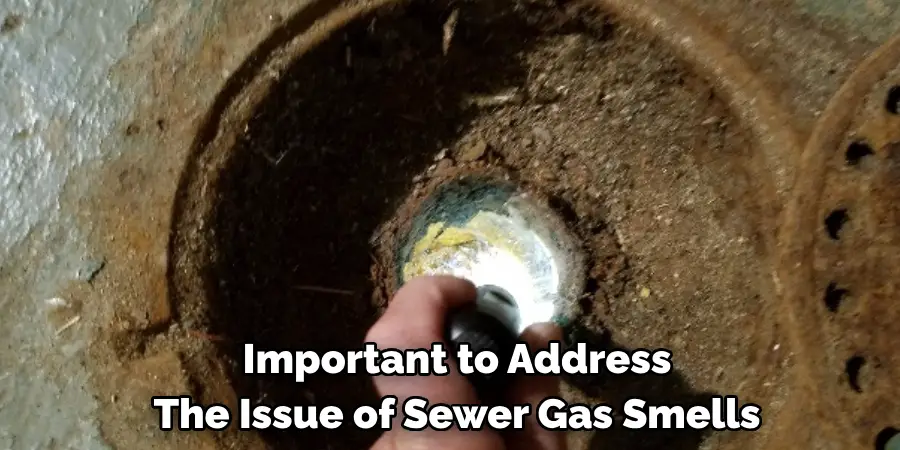
Unfortunately, many people do not realize that there may be underlying problems causing their basement to smell like sewer gas. In some cases, the source of the smell may be coming from outside. This could include a broken or cracked sewage pipe, storm drain, or septic tank that is allowing the gas to escape into your basement through cracks in the foundation or windowsills. It is important to investigate any potential external sources and take appropriate action if necessary.
In other instances, the issue may be caused by a blockage in one of your home’s drainage systems. This can cause water to back up into the basement and release noxious fumes that build up over time and eventually become unbearable. Fortunately, there are steps you can take to alleviate this problem such as properly maintaining your plumbing systems and ensuring all drains are clear and functioning. It is also important to inspect any pipes for leaks or damage that could be causing the issue.
10 Methods How to Get Rid of Sewer Gas Smell in Basement
Inspect and Identify the Source:
Begin by conducting a thorough inspection of your basement to identify the source of the sewer gas smell. Check for any damaged or leaking plumbing pipes, faulty seals, or dry traps. Pay close attention to floor drains, sump pits, and areas where plumbing connections are present. Use your sense of smell to pinpoint the strongest odor. Once the source is identified, take steps to repair or replace the affected pipe.
Check and Restore Water Traps:
Water traps, also known as P-traps, are designed to prevent sewer gases from entering your home by creating a water barrier. If a water trap dries out, it can allow sewer gas to escape. Ensure that all drains, including floor drains, sinks, and showers, have water in their traps by running water through them regularly. If a trap is dry, pour water into it to restore the barrier. Consider investing in a floor drain check valve to prevent water from draining out of the trap.
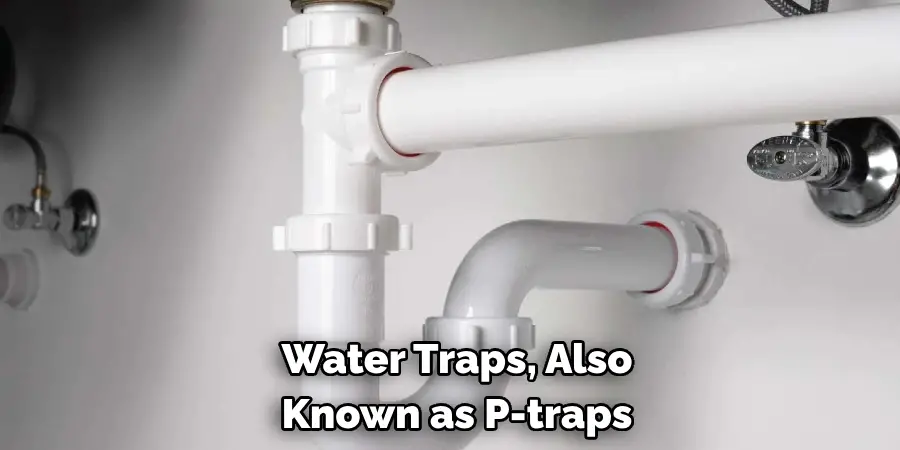
Fix Plumbing Leaks:
Inspect your plumbing system for any leaks, including pipes, fittings, and seals. Even minor leaks can contribute to sewer gas smells. Use a flashlight to check for water stains, dampness, or signs of corrosion. Repair or replace any damaged or faulty components to prevent gas leaks and restore the integrity of your plumbing system.
Although plumbing repairs can be expensive, they are worth it to ensure a safe and odor-free basement. Though you might be able to tackle simple plumbing repairs, if your basement plumbing is extensive and complicated, it’s best to hire a professional plumber.
Ventilate the Basement:
Proper ventilation is crucial in reducing sewer gas odors in your basement. Install exhaust fans or use portable fans to improve air circulation. Open windows and doors when weather permits to facilitate the exchange of stale air with fresh air from the outdoors. Consider using a dehumidifier to control humidity levels and prevent the accumulation of moisture that can contribute to sewer gas smells.
Clean and Flush Drains:
Clean and flush all drains in your basement to remove any buildup of debris or organic matter. Use a mixture of hot water and vinegar or baking soda to clean and deodorize drains. Consider using a drain snake or brush to dislodge any stubborn clogs. Allow the mixture to sit in the drain for some time before flushing it with hot water.
Install Drain Covers:
Install drain covers or screens to prevent debris and odors from entering your basement through floor drains or other openings. Ensure that the covers fit securely and are properly maintained to provide effective protection against sewer gas smells. Clean the covers regularly to remove any accumulated debris. If the odor persists after installing drain covers, check to make sure that all the drains are covered.
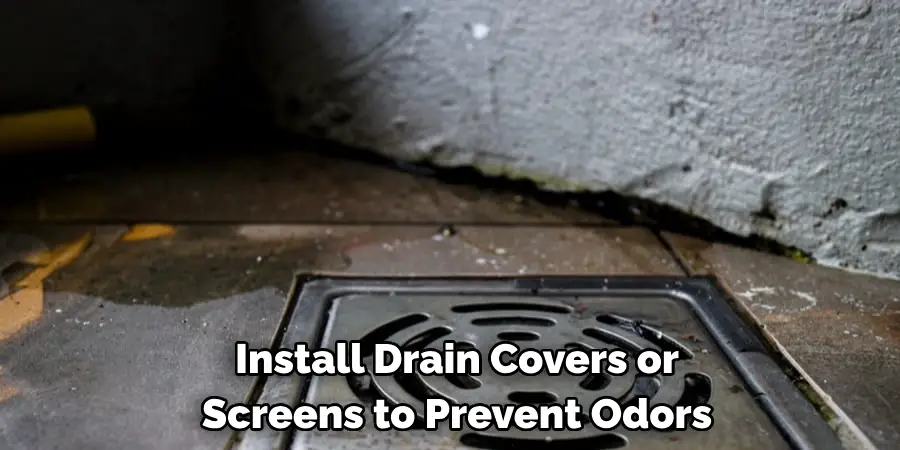
Use Enzyme-Based Drain Cleaners:
Enzyme-based drain cleaners can help break down organic matter and eliminate foul odors in your plumbing system. These cleaners contain beneficial bacteria that feed on the organic material, reducing the chances of odor formation. Follow the manufacturer’s instructions to use these cleaners effectively and safely. Regular use can help prevent the recurrence of sewer gas smells.
Seek Professional Help:
If the sewer gas smell persists or you are unable to identify the source of the odor, it is advisable to seek professional assistance from a licensed plumber. They can conduct a comprehensive inspection, detect hidden issues, and provide expert solutions to eliminate the smell. A professional plumber can also ensure that your plumbing system is in good condition and address any underlying problems.
Inspect Roof Vents:
Check the roof vents connected to your plumbing system to ensure they are clear of obstructions. Leaves, debris, or animal nests can block the vents, causing sewer gas to accumulate and enter your basement. Use a ladder and flashlight to inspect the vent openings and remove any blockages carefully. If you are unsure, consult a professional for assistance.
Regular Maintenance and Preventive Measures:
To prevent future sewer gas smells in your basement, practice regular maintenance and preventive measures. This includes scheduling routine plumbing inspections, promptly fixing leaks, keeping drains clean, and ensuring proper ventilation and drainage throughout your home. Regularly check and maintain water traps, especially in areas with less frequent use, such as basements and utility rooms.
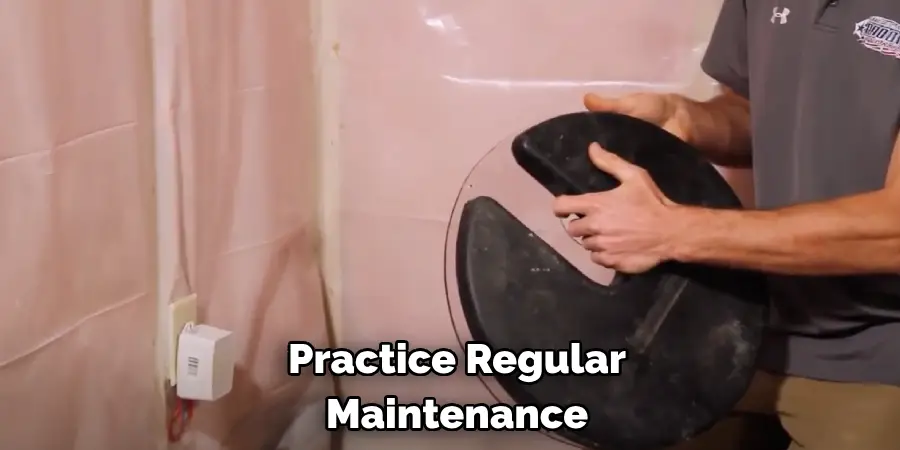
Conclusion
Ultimately, getting rid of a sewer gas smell from your basement is possible with the right approach. Not only should you ensure that all vents in the basement are properly working, but troubleshoot any issues related to plumbing and drains. You can also do routine maintenance such as regularly flushing out your water heater and treating floor drains to avoid build up. If all else fails, you may have to call in a professional plumber for additional help.
By following these steps on how to get rid of sewer gas smell in basement, you can finally reclaim your space from this odorous nuisance! Take action today so you don’t have to live with this unpleasant issue for much longer! Remember if all else fails, reach out to a qualified professional for help in tackling this problem and restoring safety back into your house.

